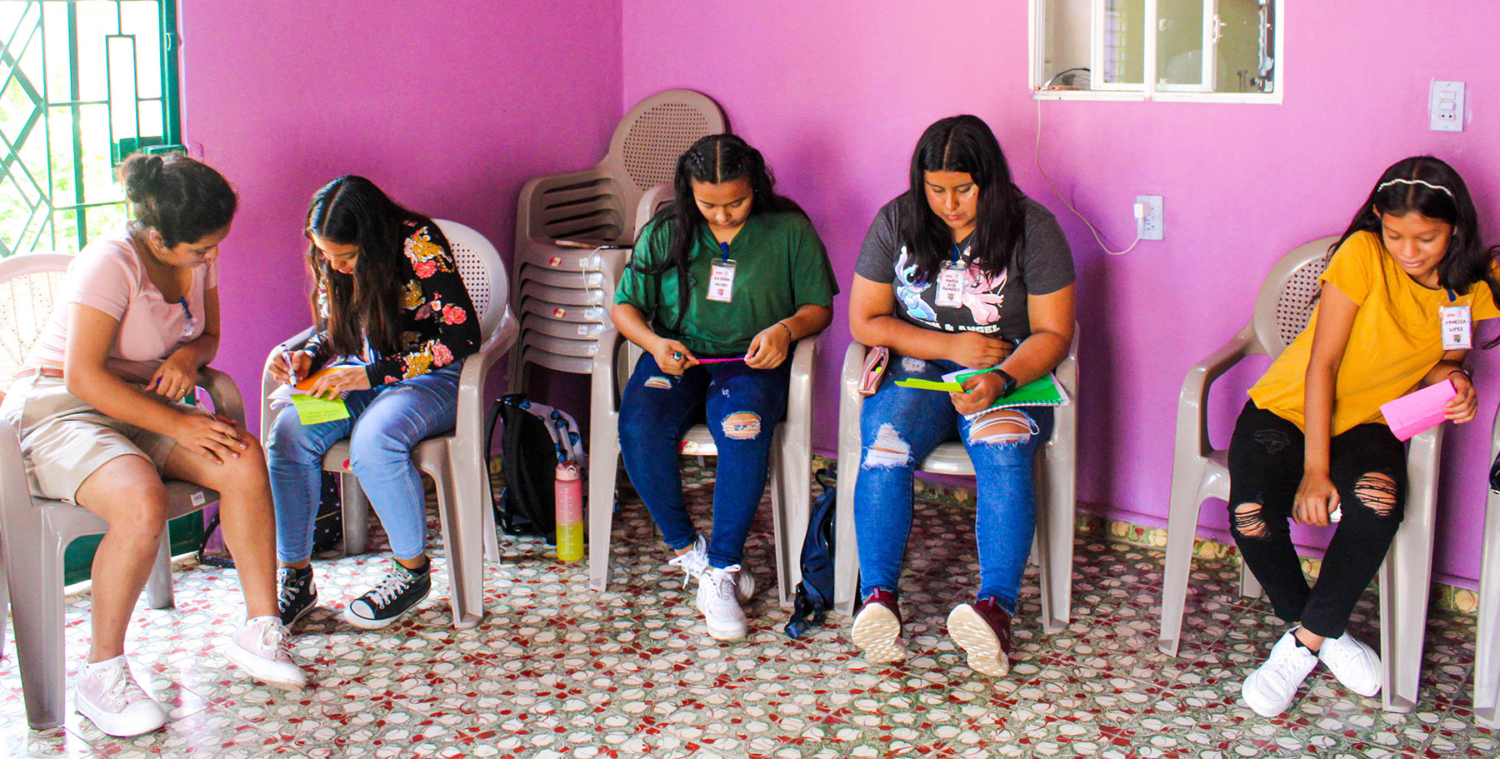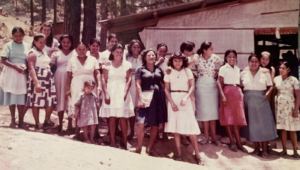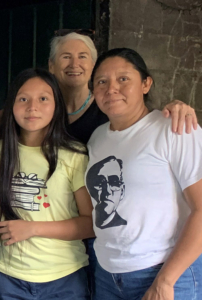I came to Hesperian from El Salvador, where I had lived and worked with a number of communities for about 15 years. I accompanied people first as refugees and then in resettled communities striving to rebuild after a long, bloody civil war.
I return now as often as I can – not often enough – to nurture friendships, connections, and solidarity.
My trip this January to the capitol city and rural communities in the southern floodplains and the northern mountains was wonderful but concerning in a different way than previous trips. For the first time since the end of the civil war in 1992, armed soldiers and military vehicles were everywhere. Mobilized by the current president (in his own words: “the coolest dictator ever”), they now inspire fear far beyond the gang members they supposedly protect against. The people I know see them as the harbingers of authoritarianism reborn.
Despite the spread of militarism, I still loved visiting the resettled communities in the Lower Lempa region. Familiar faces – the daughters of the women I worked alongside 40 years ago – are now leading their communities as agronomists, teachers, and members of their town councils.
Isabela, a teacher and representative to the regional community council, talked to me over morning coffee about how girls are staying in school, now able to attend high school, but lack educational materials about their bodies. “They don’t understand sexuality, good relationships, not even contraception.” The Hesperian books I delivered were greatly appreciated.
Isabela explained how she had a meeting scheduled with the Women’s Network of Morazán (a neighboring province) to learn about their successful sexual rights and health training workshops.
On a trip to Morazán two years ago, I spoke at a graduation ceremony that the Women’s Network held for a group of 22 teens who had completed a 12-week course on sexual health and rights, consent, contraception and other topics. I was thrilled to note their curriculum included activities from Hesperian’s Health Actions for Women. On this trip, I learned about the successes activists there had made in raising awareness about gender-based violence, including with the local judges. Maritza, one of the group’s leaders, noted with a tinge of dismay: “but that legal work was short-lived. The President forced most of the judges to retire.”
The Women’s Network trainings might be the only way those kids are going to learn about sexuality. Last month, President Bukele announced that “all traces of gender ideology will be removed from El Salvador’s public schools,” a move that LGBTQ organizations in El Salvador called a smokescreen that “aims to divert the public’s attention from the more significant and urgent issues facing our society.” Celia Medrano, former leader of the non-governmental Commission on Human Rights, explained: “Bukele is a conservative, patriarchal leader who thinks he is anointed by God.” Medrano fears that the public acceptance won by the LGBTQ community in recent years will now face increased violence and repression.
The hard right turn in El Salvador feels unfortunately very familiar. In the US, we’ve seen fresh reminders of how attacks on women, gender equality, and sexual education combine with assaults on democratic process. Yet amongst everything, the examples of young people in the US and El Salvador who continue to struggle for reproductive rights, gender inclusiveness, and an end to social violence as a tool of coercion gives me hope.
Written by Sarah Shannon, Executive Director at Hesperian Health Guides.

 Visiting our colleagues in global health!
Visiting our colleagues in global health!


